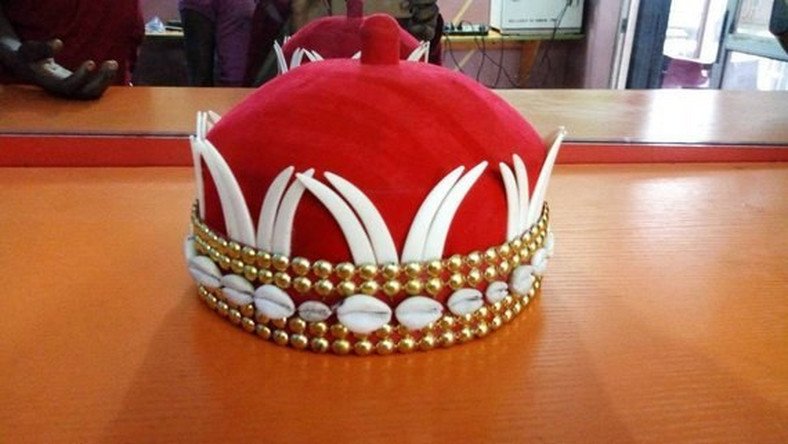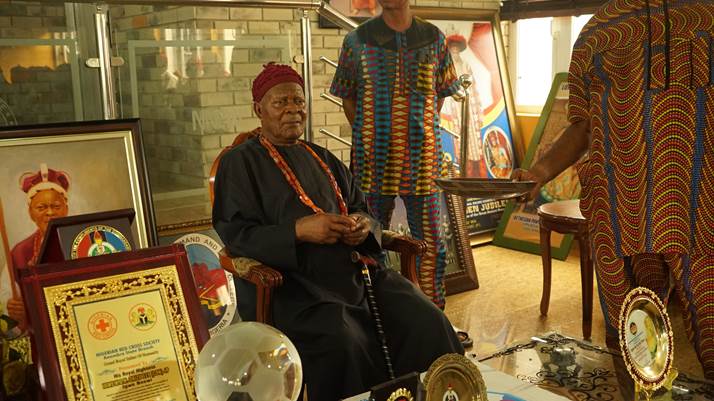By AZUKA ONWUKA
I read with dismay the conjecture written by Chi Ngo (Mr Chijioke Ngobili) that the Nnewi monarchy was created by the British. He argued that records showed that the British called the traditional ruler of Nnewi “Chief Orizu”.
He made other claims in that post, which many believed because of his pedigree. But sadly, what he wrote was blatantly false. The opening part of his post read:
“When the Warrant Chief Orizu of Nnewi (who’s now described as first Igwe Orizu/Igwe Orizu I of Nnewi) died in 1924, the British colonial officers in Ọnịcha District helped to recommend his 20 yr old son, Josiah to succeed him.
So, Josiah later begot the current one who’s Kenneth and who’s addressed as the “Igwe Orizu III” of Nnewi). Documents to this effect abound.”
The hereditary monarchy of Nnewi predates the British. But it is not absolute monarchy like we have in the UK or Benin or the Southwest or Northern Nigeria.
READ ALSO: I Won’t Allow Denigration Of Monarchs Under My Watch -Obiano
It runs from the smallest unit (the ụmụnna) through the ógbè (village), to the quarter or semi-town, then to the town. Each of them has an obi which is hereditary via primogeniture.
The British cannot impose hereditary monarchy on Nnewi and Nnewi would just accept it sheepishly and still happily practise it over a hundred years after.
Nnewi people are very ambitious people with enormous resources – if the hereditary traditional rulership was created by the British, many powerful men would have used their wealth and political clout to appropriate such positions in this modern age. But in Nnewi, the throne of the Igwe or the Obi at all levels does not go to the rich or strong or influential.

When Major Moorhouse led the British into Nnewi in 1904, the Igwe of Nnewi (Igwe Iwuchukwu) had just died. For fear that his son (Orizu) would be killed or treated the way Jaja of Opobo, Oba of Benin and some other monarchs had been treated, he was taken to Ihiala (the hometown of his mother) and hidden there. The Igwe’s uncle Nwosu Ezeodumegwu stood in for the Igwe at the Nnewi square.
The British thought the man was the traditional ruler of Nnewi, but he told them no, that his nephew was, but because he was mourning his father tradition had it that he should not come out to see strangers. Ezeodumegwu was undoubtedly the richest man then.
The British were impressed with his carriage and power and wanted to make him the ruler of Nnewi, but he told them no, that the throne of Nnewi was hereditary from father to his first son. As an ọzọ titled man, the taboo of his ọzọ would not allow him to take what did not belong to him.
It was only after there were assurances that the young king would not be harmed that he was later brought back to meet the British and a treaty was signed.
Not All Twins Were Killed During The Pre-Colonial Era In Igbo Land
Umudim my part has its obi which is hereditary. My village Okpuno-Egbu has its obi which is hereditary. My ụmụnna has its obi which is hereditary.
The obi of Otolo is also the Igwe of Nnewi (because Otolo is the first among the four “jaws” of Nnewi). It is not contested, selected, or appointed.
When the Obi of Uruagu Nnewi died, his first son simply took over. When the Obi of Umudim Nnewi died, his first son automatically took over. When the Obi of Nnewichi died, his first son seamlessly took over.
No election, no horse-trading, no lobbying, no appointment. When the Obi of my village (Okpuno-Egbu) died last year, his first son (a medical doctor based in the United States) came back to bury his father and become the Obi.
The office of the traditional ruler at all levels in Nnewi does not go to a former Senate President or Speaker or Governor or military General or Director General of a government agency or one billionaire that is well connected with those in power.
The state government does not even wield any influence in determining who becomes the next Obi or Igwe as the case may be in Nnewi. The first son automatically takes over and life goes on.
Nnewi people love it like that. It saves them bickering, court cases, assassinations, and lack of peace and progress. To strike a balance, Nnewi people made all elective political/social offices rotational.
Post Disclaimer
The opinions, beliefs and viewpoints expressed by the author and forum participants on this website do not necessarily reflect the opinions, beliefs and viewpoints of Anaedo Online or official policies of the Anaedo Online.

